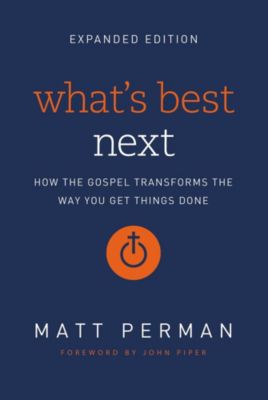
Pastors may not be able to address everything that’s stealing their time, but there are a few ways to intentionally address the problem.
By Marty Duren
Pastors believe in redeeming the time, but many struggle with what that specifically looks like. Crunched calendars have long been a reality for pastors. We’re many generations removed from the pace of the Puritans or when owning a car or telephone was a luxury. Time measured solely by sunrise and sunset is a distant memory. For at least the last 50 years, culture has impressed upon pastors the necessity of managing time, managing their calendars, and squeezing the most out of every moment. “Under Pressure” could have been a pastoral theme song.
Now, two years into the COVID-19 pandemic, pastors (and their people) are enduring what can rightly be called “warped time.” Dr. Dean Buonomano tells UCLA health:
“What’s happened to a lot of people is we’ve lost our temporal landmarks, our temporal buoys, if you will—the crumbs in the Hansel and Gretel path that people left—because throughout most of our lives we’ve had either vacations or trips or Thanksgiving or birthdays, and those serve as memory landmarks in our brains.”
Pastors may not be able to address everything that’s stealing or warping their time, but there are a few ways to intentionally address the problem.
1. Work in time blocks
Distraction is one of the everyday challenges of anyone living in the digital age. We feel a need to hurriedly, if not immediately, respond to every email or social media notification, text message, and phone call. We usually work with our phones at arm’s distance able to see the screen lighting up with the most recent of a million “I have to check this” alerts. But it’s a lie.
Battle distraction by blocking off your time according to your strengths. Click To TweetBattle distraction by blocking off your time according to your strengths. And do your best to not deviate. If you study better in the morning, block off three hours in the morning to do nothing but study. Don’t respond to emails one at a time. Block off thirty minutes or an hour to respond to all of them. Same with social media.
Working in blocks allows your brain to concentrate on the task at hand, rather than being in permanent sentinel mode for the next incoming communication.
2. Distinguish between meeting, email, text, and phone call/Zoom for communication priorities
“That was another meeting that could have been an email.” Ever heard that sentiment? Most pastors have experienced the one-hour meeting that could have been fifteen minutes or the endless email thread that could have been a two-minute phone call. We live in the shadow of wasted time.
Along with giving attention to when you do what work, give attention to how you communicate about it. If a whiteboard, handouts, or vision-casting are not part of the process, do you need to have a meeting? If one person needs information, should five people be cc’d on the email? Emails sent to multiple people create interruptions and extra work for every recipient. Does a text communicate more urgency than an email or less?
Use each communication type in a way that gets the most needed information to the appropriate recipients the most clearly with the right amount of urgency. Click To TweetUse each communication type in a way that gets the most needed information to the appropriate recipients the most clearly with the right amount of urgency. Otherwise, you’ll find yourself constantly repeating yourself, but in other media.
3. “Lose your phone” on purpose
I recently took some steps to detangle myself from my phone. I’m active on social media, involved in several group texts, and read a lot of online content, all on my phone. I’m lying to myself if I don’t admit my near-addictive, compulsive behavior toward it. And I’m not alone. A 2017 study in the Journal of the Association for Consumer Research reports:
“Results from two experiments indicate that even when people are successful at maintaining sustained attention—as when avoiding the temptation to check their phones—the mere presence of these devices reduces available cognitive capacity. Moreover, these cognitive costs are highest for those highest in smartphone dependence.”
“The mere presence” as a distraction means pastors need to frequently lose their phones on purpose. By “lose,” of course, I mean put it out of reach for extended periods of time (like during a work block). If the best way to avoid the temptation to check our phones is to get them under someone else’s lock and key (wife or ministry assistant, perhaps), then that’s a step worth taking.
4. Do a digital-declutter
Digital decluttering is a process recently popularized by professor and author Cal Newport. In his book, Digital Minimalism, he recommends setting aside 30 days “during which you will take a break from optional technologies” and “explore and rediscover” activities. At the end of the 30-days, only bring back the optional technologies that align with your life goals.
That which continually battles God for our attention must be put to death. Click To TweetWhy do this? Many pastors, if not most, are so bound to technology they don’t see often enough the downside to being part of the Internet of Everything. Jesus said, “No one can serve two masters” (Matthew 6:24, CSB). It doesn’t matter that it’s a screen and icons rather than a head and horns hewn of stone. That which continually battles God for our attention must be put to death. If you’ve reached a point where your phone is a lifeline and not a tool, then it’s stealing your time. You have to exert self-control over your tools before you can fully redeem the time.
The time we have
Whether you live 50, 70, or 100 years, your journey on this planet is limited. In the eyes of the Lord, it’s less than a day, but to us it’s all we have here. Redeeming the time doesn’t mean squeezing every sweet ounce of productivity from every waking moment and possibly some moments while we sleep. It’s living moment by moment with the Kingdom in view and remembering that rest, relaxation, and recreation are redemptive as well.

Marty Duren
Marty is a freelance writer and editor in the Nashville, TN area. He also hosts the Uncommontary podcast.









